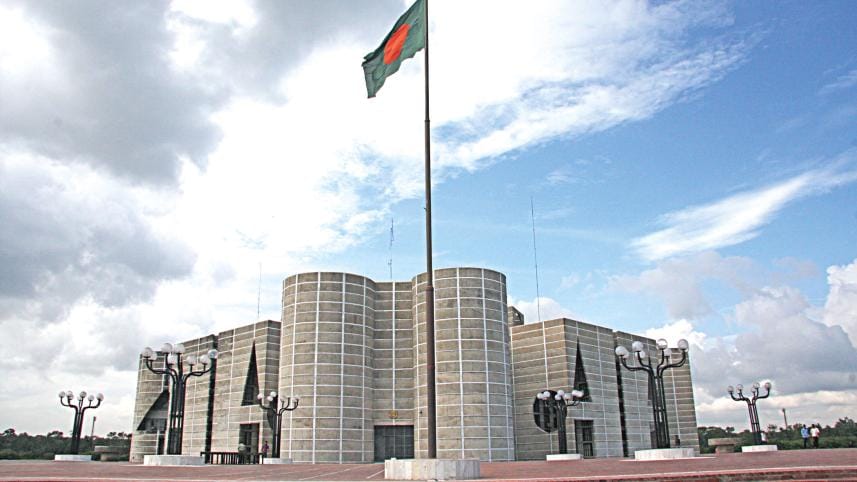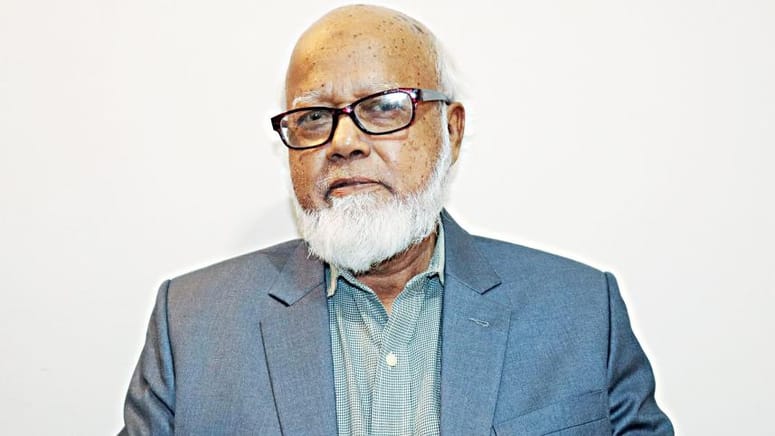The future of elections in Bangladesh

Elections as a political game changer is a global phenomenon. The concept of election is a legitimate process of 'choosing leadership' to run a sovereign state and its government. Despite many of its limitations, democratic communities globally accepted the device of 'election' as the only viable method and governance tool for a peaceful change of power that ensures citizens' choice, voice, and participation. Below the national level, other subordinate political institutions such as regional governments (provinces or component states), sub-national governments (local governments of different nature and types), and even private, voluntary, and professional institutions also arrange elections at regular intervals as an inherent device to democratically appoint their management. According to a 'Freedom House' assessment, approximately 70 national elections are expected to take place worldwide in the year 2024. Notably, the Indian parliamentary election scheduled for May-June and the US Presidential election in November are anticipated to be among the most significant electoral events of the year.

When discussing the future of elections in Bangladesh, two distinct discourses emerge. The first discourse inevitably draws upon a logical analogy of the processes, consequences, and outcomes of the country's past electoral events since its independence, particularly focusing on the Tenth, Eleventh, and Twelfth parliamentary elections. Examining the current electoral stalemate necessitates a retrospective analysis of events spanning from 2011 to 2023. Over these 12 years, Bangladesh underwent significant milestones, including a major constitutional amendment (the Fifteenth Amendment in 2011), six city elections in 2013, and three highly controversial national elections in 2014, 2018, and 2024, respectively. Furthermore, all local government elections held in Zilas, Parishads, Upazila Parishads, Union Parishads, Pourashavas, and city corporations during this period warrant critical review.
Through a systematic process over the years, parliaments have devolved into what can be described as a 'single party club,' and the multi-party system has been eroded with remarkable precision.
It is noteworthy that all elections held since 1973 have been marred by irregularities, regardless of whether under civil or military rule. As a result, the political landscape has witnessed unprecedented events, including opposition-launched movements and government responses characterized by brutal police actions and motivated court cases.
Through a systematic process over the years, parliaments have devolved into what can be described as a 'single party club,' and the multi-party system has been eroded with remarkable precision.
The second discourse is likely to involve listing some steps that can be carefully initiated in the future to contribute towards a sound political and governance system while maintaining electoral governance perspectives, considering the background of both the immediate and distant past.

ELECTION SYSTEM IN BANGLADESH IS DEAD, LONG LIVE THE ELECTION!
In discussions about monarchy and the British constitution, there is a saying, "The king is dead, long live the king." It implies that the monarchy exists primarily for ceremonial purposes, with its role and function reduced to a minimum. To summarize, Bangladesh's journey towards establishing an authoritarian single-party state is nearly complete. The process involves marginalizing dissenting voices from all civil spheres and gradually rendering pluralistic social and liberal cultural values irrelevant in mainstream society. Bangladeshi society, to some extent, resembles China during Chairman Mao's Cultural Revolution in the 1960s and the Soviet social and political system before perestroika and glasnost initiated by Mikhail Gorbachev. However, history has shown that people never succumb to defeat indefinitely, as individuals persist in creating avenues for self-expression.
During the Soviet Union era, people often gathered in communal kitchens where lively discussions gave rise to countless political jokes, humorously reflecting the realities of Soviet politics and its leaders. Nowadays, social media serves a similar role as a platform for dialogue and debate. However, unlike the communal kitchens of the past, social media is fraught with misinformation and fake news, which can significantly mislead society.
Despite the advent of social media, Bangladesh has faced successive elections since 2014 marked by unprecedented irregularities, irresponsibility, and opposition tactics. The gradual rise of authoritarianism is undoubtedly disheartening, threatening the nation's resilience and unity. Yet, it's crucial not to despair, recognizing that Bangladesh is intricately connected to the global community within a socio-economic framework.
In the long term, Bangladesh cannot afford to sustain an anti-democratic regime, particularly within a burgeoning economy fueled by the aspirations of its citizens. The nation's future prosperity and stability depend on upholding democratic principles and ensuring governance that respects the rights and aspirations of its people.
We should look at the 70 elections to be held this year, especially those of India and the USA, which may teach us valuable lessons and demonstrate certain standards. In the USA, there are 520,000 positions filled through elections, including the president, governors, senators, house members, and federal and state-level judges. Elections are held under state legislations, which vary slightly from state to state, and voters are voluntarily registered. Despite the transparency of the voting system, there are complaints such as gerrymandering, registration fraud, and vote trafficking, especially in mail-in votes, which are later addressed through stringent review, recount, and court cases. Interestingly, former President Donald Trump is facing court cases as a defendant of voter fraud and conspiracy to change results, highlighting the importance of accountability in democratic processes (Dennis W. Johnson, 2020; John Fund and Hans Von Spakovsky, 2021).
Our closest neighbor, India, which is the world's largest election manager, presents an interesting case to follow. It conducts elections for various positions, including the president, vice-president, 543 Lok Sabha and 323 Rajya Sabha members, and state legislative assembly members across almost 29 states and territories. For instance, in Assam, West Bengal, and Uttar Pradesh, 120, 294, and 403 Vidhan Sabha (state legislature) members are elected respectively. Additionally, there are 250,000 local bodies at different tiers or territorial units, and 3 million representatives for these units are elected, including one million females. All these primary elections are managed at the national and state levels by Election Commissions with the assistance of state and federal-level bureaucracy. The elections are held in two or three stages. Primary elections are popular elections managed by election commissions under stringent electoral laws, with civil bureaucracy remaining at the helm. Secondary elections are held within the respective houses to select and appoint political executives at all levels, from the Lok Sabha and Rajya Sabha to the Gram Panchayats. The President is elected by three houses of parliament—the Lok Sabha, Rajya Sabha, and Vidhan Sabha. Mayors, Chairpersons, Sarpanches, and Pradhans of respective institutions are elected by the members and councilors, and it is the prerogative of the chief executive to choose his/her executive council.
There are positions similar to speakers in each local government unit all over India, and leaders of the opposition party or group inside all the local bodies are also formed, similar to the national and state legislatures. Like the Prime Minister at the center and Chief Ministers at the states, Mayors, Pradhans, and Chairpersons of local government bodies are entitled to form their cabinets and executive councils. For a detailed historical analysis of Elections in India, see Prannoy Roy and Dorab Sopariwala (2019).

WHAT CAN BANGLADESH LEARN?
l Stringent electoral laws and their strict application are crucial. While we have good laws, their application is in shambles.
l Transparency and the rule of law at all stages of the electoral process are key to credible elections. However, our law enforcers, civil administration, and even the magistrates deployed in the field do not feel accountable, fail to maintain transparency, and lack the courage to protect victims by implementing the law.
l A sound party system with democratic practices is absent. While political parties preach democracy, they hardly practice it within the party. Party leaders are not democratically elected, and the top party bosses are often permanent and hereditary. There has been hardly any change in top leadership positions of political parties for generations. In many cases, they groom their wives, children, and near relatives for future political inheritance. The nomination system in competing parliamentary seats is equated with business deals, and many nominations are bought and sold.
l Members of parliament spend nominal time in legislative deliberations. They enjoy the prerogative of unlimited personal economic gains through business, lobbying for contracts, and gaining appointments for themselves and others. A modest reflection of their economic gains is evident in the declaration forms of 'wealth statement' in election applications (Majumder, 2024).
l Persons on the Government payroll should be non-partisan, independent professionally, impersonal, and neutral. They should serve the state, not any political party. However, gradually, the state machinery is becoming party machinery, aiming at personal extra gains.
l There is no alternative to an independent and impartial judiciary with the right courage and high moral and common ethical standards. However, these are often missing in the lower judiciary, and the higher judiciary does not take measures to prevent it.
l Law-abiding, non-violent, and politically conscious citizenship is also in the process of extinction from Bangladeshi society. Civil society is also in decline. Showing courage in public affairs is regarded as foolishness, and protest is often rewarded with punishment.
Recommendations for political and electoral reform

Electoral reform
Our 'winner-takes-all' simple majoritarian electoral system needs to change, and the adoption of 'proportional representation' (PR) may ease the aggressive political character to some extent. Under the current majoritarian system, we are continuously ruled by the minority, which turns into a brute majority. We understand that democracy is the 'rule of the majority.' Historically, our election statistics regarding the rate of voter turnout and the general impression of neutrality and accuracy of vote counts are never beyond question. Out of 12 elections, only four (1991, 1996, 2001, and 2008) earned reasonable credibility. Even statistics from those four elections show that minority votes prevailed over the majority.
In 1991, the BNP formed the government by securing 30.81% of the popular vote and 140 (46%) seats. The AL was in the opposition with 30.08% of the popular vote and 88 (29%) parliamentary seats. The same trend was seen in 1996, 2001, and 2008. In 1996, the AL formed the government with 37.44% of the vote and 146 (49%) seats, while the BNP sat in the opposition with 33.61% of the vote and 116 (39%) parliamentary seats. The 2001 election is even more depressing. The BNP formed the government with 40.97% of the vote, while the AL sat in the opposition with 40.13% of the popular vote. The vote difference between BNP and AL was 0.84, but the seat difference was 131 (44%). In 2008, the AL got 48.90% of the votes and won 230 seats (76.66%), while the BNP-Jamat combine polled 37.20% of the votes and secured only 32 (10.66%) seats. The difference in votes was 11.7%, but the seat difference was 198 (66%).
Under the PR system of election, such disparities would be less likely to occur. All parties would ensure parliamentary seats in proportion to their vote share. Every vote would count and affect election results. Voters would vote for policies rather than individuals, and practices like vote buying and rigging would be discouraged. Out of the 193 UN member countries, 97 major democracies practice the PR system, adopting many different methods. The PR system has brought significant changes to the polling system. Nepal and Sri Lanka practice limited PR systems in conducting their elections.



 For all latest news, follow The Daily Star's Google News channel.
For all latest news, follow The Daily Star's Google News channel.
Comments